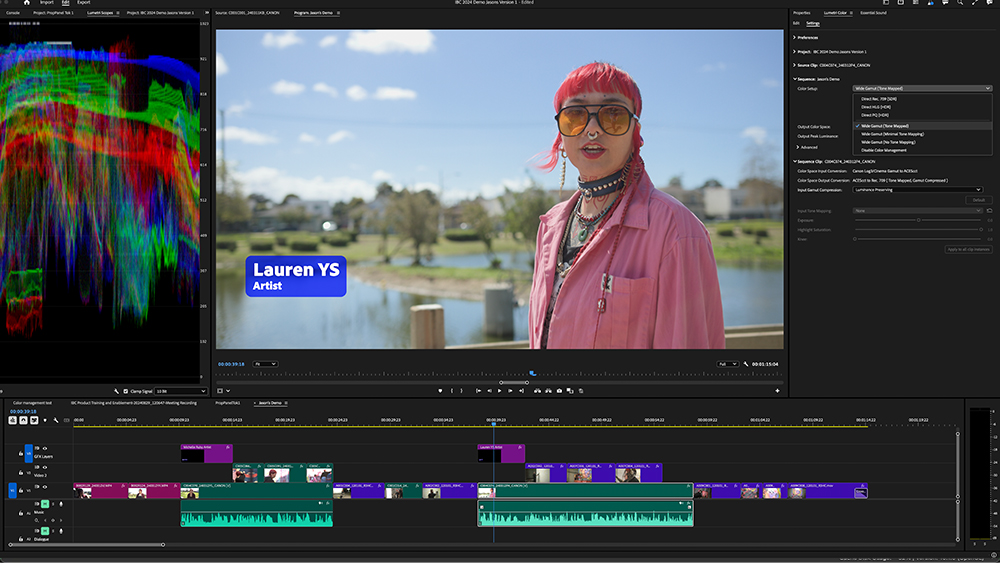
Regular updates have kept Adobe Premiere Pro at the top of our pick of the best video editing software for years now, and the creative software giant has just dropped another big raft of upgrades (and, no it's not the generative were were promised earlier in the year, although that's still in the works).
Coming ahead of IBC 2024 in Amsterdam, Adobe's launched a brand new colour management system for Premiere Pro. And it's aimed particularly at the many non-colourists who increasingly have responsibility for colour in the projects they work on (see our Premiere Pro review to learn more about the software)
The new Premiere Pro colour management system can automatically transform raw and log footage into HDR and SDR video without requiring LUTs using either Rec 709 or the ACEScct colour space for improved dynamic range. At a launch event, Senior Product Marketing Manager Jason Druss described the addition as a "generational shift in video quality with no messing in advanced settings" and part of a new commitment to improving how video editors work with colour in the software.
The system will automatically tone map raw and log footage from most cameras, while the new gamut-wide presets can use raw and log data, providing higher fidelity image processing with more dynamic range and latitude. Effectively, editors will be able to see higher fidelity footage in their timeline, with all that log detail in highlights, without requiring transfer LUTs. Effects like Lumetri colour correction are now colour-space aware, and there's also also now more accurate colour when working between Premiere Pro and After Effects using Dynamic Link.
The move recognises the fact that today many people creating video are no longer working in silos, and many editors now have to do their own colour grading, from YouTubers to professional video editors working on their own. Adobe's aim is to make colour management more invisible and automatic for the non-colourists, making it easier for any video editor to get the look they want from the vast array of raw and log formats available without having to dive into complex colour grading Crucially, it's still possible for those working with custom LUTS to disable colour management and use their own workflow.
Other Premiere Pro updates include tweaks to make the software faster to use for both experienced pros and easier to learn for new users. The most frequently used tools for any selected item now appear in a new context-sensitive Properties panel, reducing the time spent hunting through panels. Meanwhile, crop is always present in program monitor, with controls for direct crop manipulation that avoid having to go to properties panel. You can also now adjust the properties for multiple clips at the same time. The UI has also been tweaked for a more modern look, now with rounded corners. It also updates faster and is more customisable.
And generative AI? There's still no firm news on when Adobe will be adding text-to-video generation in Premiere Pro, but it says it's in dialogue with customers and is still committed to adding the feature, stressing that it's "important to get this right". That suggests plans may have been put back a little since the tease were were given earlier in the year, but a careful implementation is crucial given the potential controversy around a proposal to integrate third-party tools like Sora, which would seem to possibly contradict Adobe's previous stance on only using AI models whose training respected copyright.
Adobe has also announced new Adobe Firefly speech services for Enterprise customers, including a dubbing and lip sync API. As well as revealing new 3D tools and features for After Effects and connectivity to the Emmy Award-winning Adobe Substance 3D Painter.
See below for the best prices if you're don't yet have access to Premiere Pro. We also have a guide to how to download Premiere Pro and a full Adobe software list.







